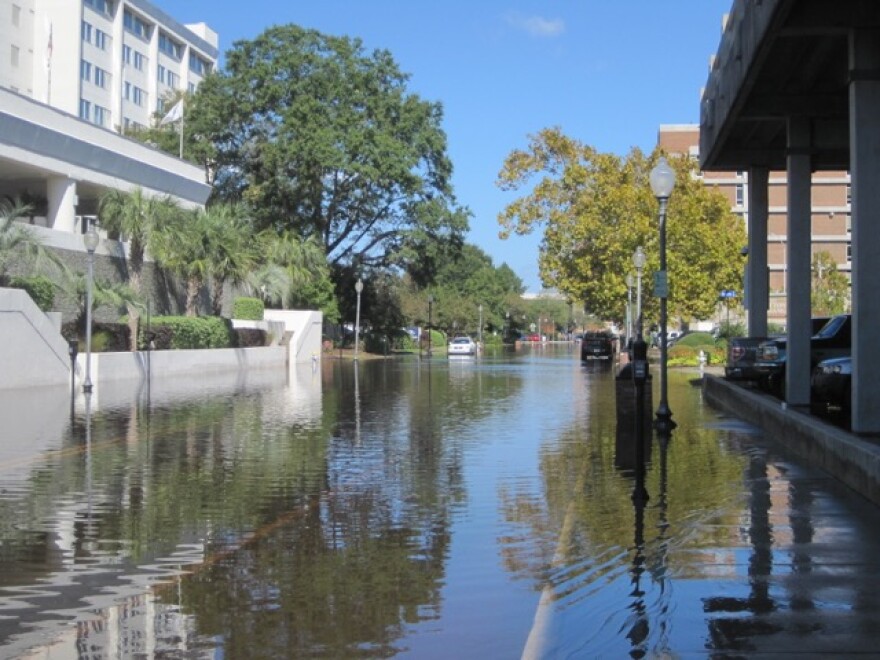Kelly Kenoyer: I'm here with Kirk Ross, a writer for the Coastal Review. Welcome, and thank you for joining us.
Kirk Ross: Thank you very much.
KK: So, just how much money is the state budget setting up for resiliency this year?
KR: It's hard to put an exact amount on it because it's in different pockets. But roughly a billion dollars is going into a combination of programs around resiliency, flood mitigation, land conservation, things like that. There's a lot built into the budget, but directly — almost a billion.
KK: How does that compare to prior years?
KR: This amount of money is maybe 10 times what we've seen. It's a substantial investment. It's not just throwing money at the issue: it's very strategic.
KK: That's pretty incredible. So who all is supporting this, this money, this influx of money that's coming in towards the resiliency?
KR: Well, there's a pretty broad coalition, you have folks who are deeply concerned about the impacts of climate change. And you have folks who are absolutely concerned about flooding and mitigation from disasters at a very hyper-local level.
We had such devastation in this state, that a lot of the thought and ideas of going and handling things from storm to storm, that dialogue is completely changed. It's all about how to prepare for the next storm and the one after that, and the one after that.
I was interviewing the state climatologist, Kathie Dello, and she made the comment that there's really not going to be a new normal, that there's going to be these repeated storms. And we're going to have a warmer wetter climate. And that means even non-tropical storms are going to be rougher, they're going to be wetter, they're going to dump more water in a shorter period of time.
So throughout the state, there's a lot of consensus that we have to get better at mitigating this. It's finding ways to channel water, finding ways to keep roads to hospitals open. Things like that.
KK: One thing you kind of mentioned in your Coastal Review article was the intentionality of language that came along with this bipartisan movement. Can you tell me a little bit about the intentional choice to use the term 'resiliency' instead of the term climate change?
In the halls of our legislature, saying the word climate change -- when you’re trying to negotiate something, when you're trying to get a resilience bill through -- isn't going to get you anywhere with some folks, and it'll turn people off.Kirk Ross
You know, I think going back to, you know, 10 years ago, the sea level rise debate we had back and forth. And moments, I remember in the legislature where someone said “global warming,” it was kind of one of those record scratch moments and everything stopped and, and people started questioning that person, whether they really believed in that.
Things have changed. The fulcrum has moved, because it's apparent. Because we had two devastating hurricanes in a row that hit much of the same area. And so the idea that something's not up, went away. And what is up is still a subject of contentious debate in our legislature.
People as a whole may agree that there's climate change, but in the halls of our legislature, saying the word climate change, when you’re trying to negotiate something, when you're trying to get a resilience bill through, isn't going to get you anywhere with some folks, and it'll turn people off.
Language does mean something to people, they're writing laws, and they're not all there yet on the idea of climate change. But I guess strategically, they're not all there when it comes to things like carbon reduction. You know, I think, I think why you saw folks really rally around resiliency was because there really was a true consensus.
KK: Kirk, thank you so much for this conversation. And it was a really interesting article. Thank you for talking me through it.
KR: Sure. I appreciate it.
Note: Kirk Ross’s Coastal Review article is available here.


